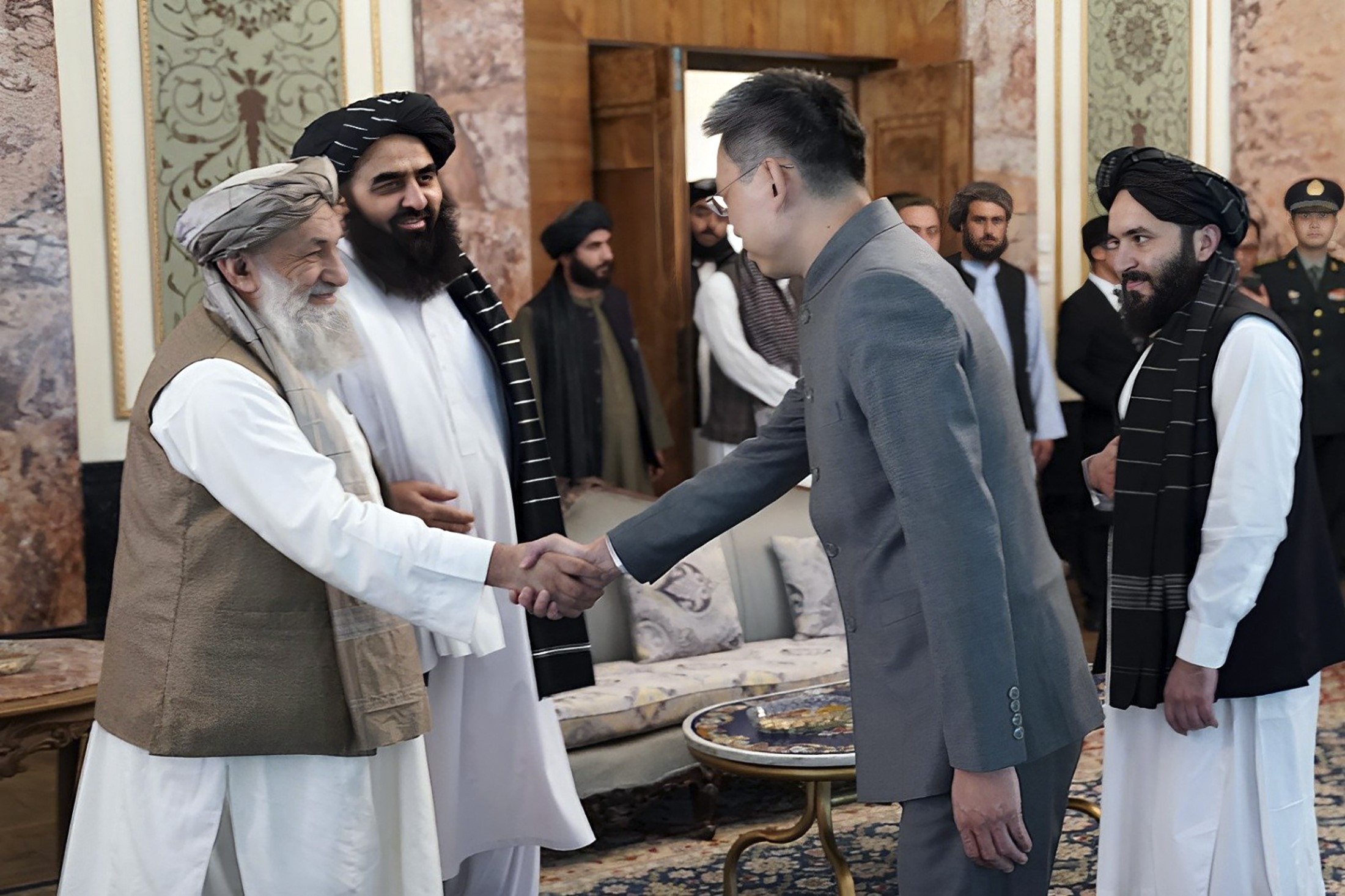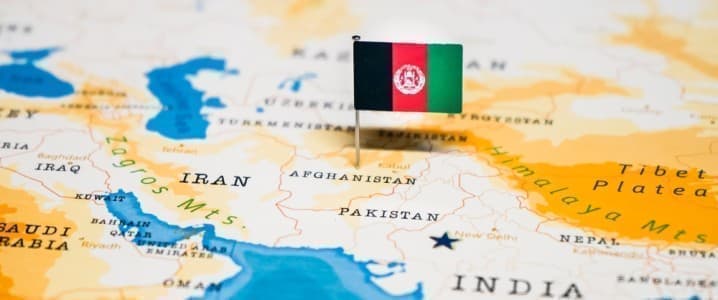China’s recent acceptance of the Taliban ambassador’s credentials is perceived as a significant endorsement for the Taliban-led government, potentially influencing neighboring countries. Anticipated discussions on recognizing and engaging with the Taliban at a forthcoming UN conference on Afghanistan underscore the diplomatic complexities surrounding the group.
On January 30, Chinese President Xi Jinping officially acknowledged the credentials of the Taliban-appointed ambassador, marking the first such acknowledgment by a head of state.
However, the Chinese Foreign Ministry clarified that this move does not equate to formal recognition of the Taliban government. Wang Wenbin, the ministry spokesperson, emphasized that diplomatic recognition would naturally follow as concerns of various parties are addressed.

In this handout photo released by Taliban Prime Minister Media Office, China’s new ambassador to Afghanistan Zhao Sheng shakes hand with Taliban Prime Minister Mohammad Hasan Akhund, left, during the recognition ceremony at the Presidential Palace, in Kabul, Afghanistan, Wednesday, Sept. 13, 2023. The Taliban on Wednesday greeted China’s new ambassador to Afghanistan with pomp and ceremony, calling the envoy’s nomination a significant step with a significant message. (Taliban Prime Minister Media Office via AP)
While China’s decision was celebrated by the Taliban as a diplomatic victory, it is crucial as it boosts the standing of the Taliban-led government, which has not received recognition from any country since seizing power in 2021. The potential influence of China’s diplomatic ties with the Taliban could extend to other regional players, such as Iran and Russia.
Ibraheem Bahiss, an Afghanistan expert at the International Crisis Group, suggests that China’s move indicates progress in the Taliban’s strategy to gain official recognition from regional countries.
However, some critics, including exiled former Afghan government official Najib Azad, argue that full diplomatic recognition from all five permanent members of the UN Security Council is essential for meaningful acknowledgment.
Looking ahead, a UN conference on Afghanistan is expected to address the contentious issue of recognizing and engaging with the Taliban. The group faces significant challenges in gaining international legitimacy, with many nations linking recognition to conditions such as establishing an inclusive government, protecting women’s rights, and severing ties with extremist groups.
Meanwhile, Afghanistan’s decline in Transparency International’s corruption rankings adds another layer of difficulty for the Taliban government in establishing credibility. The country dropped 12 places in the 2023 Corruption Perception Index, now ranking 162nd out of 180 countries. Despite the Taliban’s claims of fighting corruption, the decline suggests persistent challenges, raising doubts about the group’s governance and transparency.























